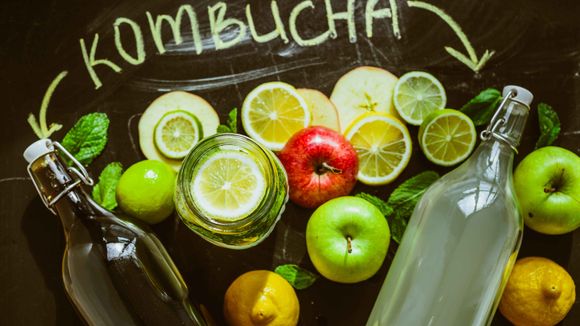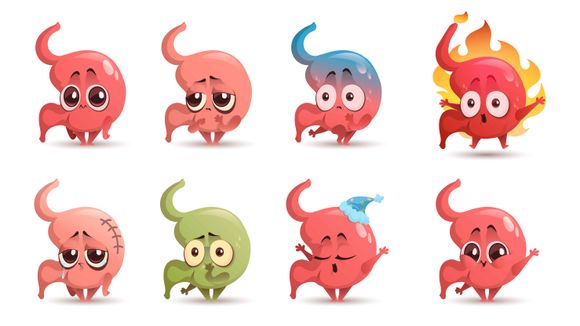Why ulcers form in first place
Ulcers form when digestive juices damage the walls of the stomach or small intestine. If the mucus layer becomes too thin or your stomach produces too much acid, your gut will react. In this regard, the two main reasons for the formation of ulcers are:
- Helicobacter pylori (H. pylori) - almost half of us are carriers. Most people infected with H. pylori do not get ulcers. But in others, the bacterium can increase the amount of hydrochloric acid, destroy the protective mucus layer and irritate the digestive tract.
- Some painkillers if you've taken aspirin frequently or for a long time, you're more likely to have peptic ulcer. The same applies to other nonsteroidal anti-inflammatory drugs (NSAIDs). NSAIDs block your body from producing a chemical that helps protect the inner walls of your stomach and small intestine from stomach acid. Other types of pain medications, such as acetaminophen, will not lead to peptic ulcers.
- Smoking cigarettes and drinking alcohol can also become a prerequisite for you to develop ulcers, have indigestion and metabolism, as well as problems with the urinary system.
What are the symptoms of peptic ulcer?

The appearance of burning pain or discomfort between the navel and sternum is a major signal of a possible ulcer. It mostly appears on an empty stomach - for example, between meals or at night. The pain may stop for a while if you eat or take an antacid, but then it can return.
Other suspected symptoms of peptic ulcer are:
- Feeling of bloating in the abdomen
- Increased frequency of burping
- Lack of appetite or weight loss
- Nausea and vomiting
Natural and home remedies for ulcers
Flavonoids
Scientific evidence suggests that flavonoids, polyphenolic antioxidants, may be an effective additional treatment for stomach ulcers. [ref. 1] Flavonoids are compounds that occur naturally in many fruits and vegetables. Foods and beverages rich in flavonoids include:
- Soy
- Pulses
- red grapes
- cabbage
- broccoli
- Apples
- berries
- teas, especially green tea
These foods can also help the body fight against H. pylori bacteria and improve its antioxidant defenses. [ref. 2]
Deglycyrized liquorice/licorice
Deglycyrrhiza glabra (licorice) is simply an old licorice with extracted sweet extract. [ref. 3] Several studies have shown that deglycyrrhized licorice may help in ulcer healing by inhibiting the growth of H. pylori. [ref. 4]
Probiotics
Probiotics are live beneficial bacteria and yeast that provide important microorganisms for your digestive tract. They are present in many common foods, especially fermented foods such as:
- Kombucha
- Yoghurt
- Miso
- Kimchi
- Kefir
- Pickle and others.

Honey
Depending on the plant from which it is obtained, honey can contain up to 200 elements, including polyphenols and other antioxidants. Honey is a powerful antibacterial agent and has been shown to inhibit the growth of H. pylori. [ref. 5]
Garlic
Garlic extract has been shown to inhibit the growth of H. pylori in laboratory, animal and human studies. [ref. 6]
If you do not like the taste and aroma of garlic, you can take garlic extract in supplement form.
Cranberry
In some studies, cranberry has been shown to help reduce urinary tract infections by preventing bacteria from lingering on the walls of the bladder. Cranberry can also help fight H. pylori.
Foods That Should Be Restricted or Avoided in people with Ulcers
In some people, the consumption of certain foods can affect the lower part of the esophagus, called the lower esophageal sphincter, allowing the acid and stomach contents to flow back into the esophagus. This can cause injury to the esophagus, as well as heartburn, indigestion and reflux.
To avoid acid reflux and the discomfort associated with its occurrence, we recommend that you limit your intake of:
- Coffee and other caffeinated beverages
- Carbonated drinks
- Chocolate
- Chile and hot peppers
- Processed foods
- Foods high in salt
- Deep-fried foods
- Acidic foods such as citrus and tomatoes







